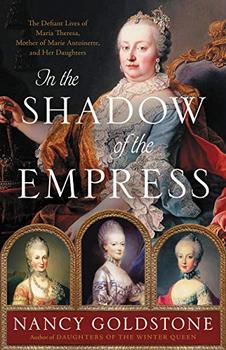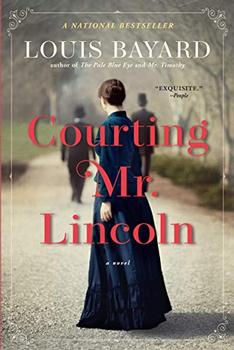Summary | Excerpt | Reviews | Beyond the book | Read-Alikes | Genres & Themes | Author Bio

All History and every age exhibit Instances of patriotick virtue in the female sex; which considering our situation equals the most Heroick of yours.
-Abigail Adams, in a letter to John, 1782
John Adams considered Abigail his intellectual equal, remarking early in their courtship on his future wife's sharp wit and "saucyness," and jokingly referring to her "Habit of Reading, Writing and Thinking," as being "inexcusable in a Lady." More than just a loving and devoted wife, Abigail Adams enjoyed a marriage of mutual respect and admiration. While she may not have picked up a musket or drafted a declaration, she fully believed that women should be recognized for the part they played in the fight for independence. Biographer Woody Holton brings this remarkable woman to life in a delightful portrait of "the woman behind the man."
 Holton reminds us of a time when women essentially had no legal rights or identity, going from the jurisdiction of their fathers to that of their husbands, with no control over their earnings, property, or inheritance. "I desire to be very thankful that I can do as I please now!" Abigail writes shortly after her marriage to John. Though John did not always approve of the investments Abigail made with her own "pin money," she was unrestricted enough to do as she wished, at times taking a beg-for-forgiveness rather than an ask-for-permission approach. Abigail's contempt for a system that held women to be no better than property is a cause that she championed through out her life.
Holton reminds us of a time when women essentially had no legal rights or identity, going from the jurisdiction of their fathers to that of their husbands, with no control over their earnings, property, or inheritance. "I desire to be very thankful that I can do as I please now!" Abigail writes shortly after her marriage to John. Though John did not always approve of the investments Abigail made with her own "pin money," she was unrestricted enough to do as she wished, at times taking a beg-for-forgiveness rather than an ask-for-permission approach. Abigail's contempt for a system that held women to be no better than property is a cause that she championed through out her life.
Girls in colonial times were homeschooled, if at all. Women honed their writing and thinking skills by reading and discussing books, exchanging ideas and opinions through correspondence. Abigail placed great value on this and it was with out a doubt what sharpened her masterful gift of putting pen to paper. But she deeply regretted her lack of a formal education, attributing it to sex discrimination. In an exchange of letters with John in which he expressed concern over the lack of higher educational opportunities in New England (for boys), she wrote back, "If we mean to have Heroes, Statesmen and Philosophers, we should have learned women," her point being that well-educated mothers would value education for their children.
 Over the course of her lifetime, Abigail Adams wrote more than 2,000 letters to John, her sisters and others. From excerpts from this massive collection of correspondence we learn about a woman who was on her own for much of her marriage, raised children, oversaw a working farm, managed finances and looked after John's law practice. She imported lace and linens, selling them at a profit to help keep the family afloat during the years that John was consumed by the war effort and money was in short supply. We learn of her fears and concerns for her children, echoing worries that mothers of all generations have felt. Yet through it all, Abigail remained a voice of social conscience.
Over the course of her lifetime, Abigail Adams wrote more than 2,000 letters to John, her sisters and others. From excerpts from this massive collection of correspondence we learn about a woman who was on her own for much of her marriage, raised children, oversaw a working farm, managed finances and looked after John's law practice. She imported lace and linens, selling them at a profit to help keep the family afloat during the years that John was consumed by the war effort and money was in short supply. We learn of her fears and concerns for her children, echoing worries that mothers of all generations have felt. Yet through it all, Abigail remained a voice of social conscience.
"Remember the Ladies," her famous letter (see sidebar), written to her husband in March 1776, asked him and his colleagues to "be more generous and favorable to them than your ancestors." Again she wrote him in 1782, after most states had rewritten and adopted their new constitutions, lamenting that American women "deprived of a voice in Legislation," were "obliged to submit to those Laws which are imposed upon us."
Woody Holton artfully shapes vast archives of documents and correspondence into an intimate portrait of a freethinking, clever and articulate visionary navigating the narrow perimeters of her time. Though the word did not yet exist in the late 1700's, Abigail Adams may well have been the country's first feminist. One can only imagine her nod of approval if she could see how far her "female sex" has come.
Images Top: Abigail Adams by Benjamin Blythe, 1766; Bottom: Abigail later in life, by Gilbert Stuart
![]() This review
first ran in the November 19, 2009
issue of BookBrowse Recommends.
This review
first ran in the November 19, 2009
issue of BookBrowse Recommends.

If you liked Abigail Adams, try these:

by Nancy Goldstone
Published 2022
The vibrant, sprawling saga of Empress Maria Theresa - one of the most renowned women rulers in history - and three of her extraordinary daughters, including Marie Antoinette, the doomed queen of France.

by Louis Bayard
Published 2020
From the prizewinning author of Mr. Timothy and The Pale Blue Eye comes Courting Mr. Lincoln, the page-turning and surprising story of a young Abraham Lincoln and the two people who loved him best: a sparky, marriageable Mary Todd and Lincoln's best friend, Joshua Speed.
Your guide toexceptional books
BookBrowse seeks out and recommends the best in contemporary fiction and nonfiction—books that not only engage and entertain but also deepen our understanding of ourselves and the world around us.